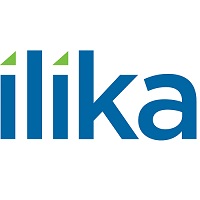Ilika plc (LSE:IKA) Chief Executive Officer Graeme Purdy caught up with DirectorsTalk for an exclusive interview to discuss the commencement of their solid-state battery pilot production, Dyson’s involvement in the industry and the key benefits to Ilika’s technology
Q1: I believe you’ve got some decent milestone under your belt today, could you explain that?
A1: We announced the commencement of solid-state battery production of our pilot line here in Southampton.
Q2: In terms of that, could you explain the importance of deposit rates in your process?
A2: Deposition rates are very important to be able to achieve an attractive selling price for the solid-state batteries so a lot of the development work we’ve put into this technology has been focussed on increasing deposition rates relative to that which can be achieved by other commercially available technologies.
Q3: Is the deposition rate the key difference between your technology and others? Is that the whole crux of the matter?
A3: One of the key differences between our technology and other solid-state battery technologies is that we can produce stacked architecture which means we can put a larger capacity battery on to a single substrate and in order to produce those stacked batteries commercially, you need to be able to achieve a relatively high deposition rate which is what we’re demonstrating at the moment.
Q4: Ilika’s technology represents a very different way of making batteries, which industries can we look to for relevant benchmark processes on this?
A4: There are other industries that have been very successful in deploying the type of apparition technology that we use in order to make our batteries. In particular, you can look to the photovoltaic industry which uses a similar technique in order to make photovoltaic panels.
Q5: There’s been some news regarding one of your competitors, one of the existing solid-state battery manufacturers, Cymbet who is understood to have ceased trading earlier this month. Why was their business not viable?
A5: The principal difference between Cymbet and what Ilika’s doing is that Cymbet was using the traditional solid-state battery technology that came out of Oak Ridge National Lab in the 1980’s. The cells that they were able to produce using this technology are too small for most of the markets that are addressable using solid-state batteries.
Q6: Your sort of area has been in the news because Dyson has been involved in investing in it. Could you explain a bit about that?
A6: Yes, I think that’s an exciting development for the industry which shows that solid-state batteries are being taken very seriously as the next generation technology to replace the standard lithium-ion batteries that has become ubiquitous with consumer electronics. Sakti3’s technology is not widely understood because they haven’t published a great deal of data but we understand that they are making larger scale batteries that are suitable ultimately for automotive whereas our technology is primarily focussed on micro batteries for wireless sensor networks and then wearables after that.
Q7: This is a positive read-across from James Dyson investing in that company and what you’re doing in terms of just boosting the profile of the sector and increasing awareness of it?
A7: Yes and it demonstrates that solid-state batteries are being taken seriously as the forerunner to give consumers the type of development in battery performance that we all look forward to; increased battery life, increased capacity density i.e. a larger amount of charge, and also the ability to charge and discharge a bit more rapidly.
Q8: It may not be that there’s a direct relationship but in terms of what a solid-state battery could do to a mobile phone, what is the difference just to give people an idea in a colloquial sense?
A8: Typically we talk in terms of a doubling of energy capacity in the given volume so your mobile phone will last for 2 days rather than for 1 day, an increase in charging rates so that instead of charging your battery in an hour, you can charge it 10 minutes and also the ability for the battery to last much longer so it lasts in the order of 10 years rather than 1 or 2 years which is currently the benchmark for lithium-ion batteries.
Q9: Are you heading in this direction eventually in terms of your marketplace?
A9: Yes, I think the biggest addressable market for batteries is consumer electronics. The reason we have chosen wireless sensor networks and wearables is that these are high gross markets and we feel that we have a clearly differentiated product to feed into those segments and in due course, we’ll want to address the larger markets and at that time we will have driven down the cost curve of the competitors in the types of volumes that are acquired in order to address consumer electronics opportunities.


